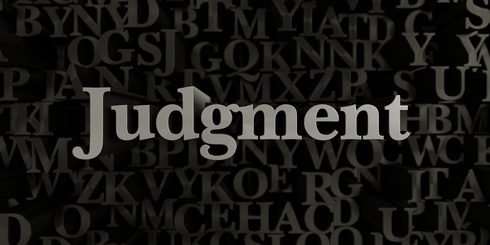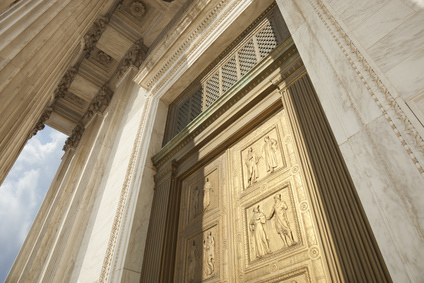The U.S. Court of Appeals for the Sixth Circuit recently affirmed a bankruptcy court’s order granting the debtors’ motion to compel the trustee to abandon their home as property of the estate because it had little equity and thus little value for unsecured creditors. A copy of the opinion in Richard Jahn v. Philip Craig Burke is available at: Link to Opinion. Husband and wife debtors filed a petition under chapter 7 of the Bankruptcy Code, listing their home on their schedules as having an appraised value of $108,000 and a mortgage of $91,581. The bankruptcy trustee moved to evict the…
Posts tagged as “Bankruptcy”
The U.S. Court of Appeals for the Fifth Circuit recently held that debts arising from a scheme to deprive mortgagees of surplus foreclosure sale proceeds were non-dischargeable, affirming the bankruptcy court’s judgment against the debtor in consolidated adversary proceedings filed by various lenders that held first mortgage liens. A copy of the opinion in Cowin v. Countrywide Home Loans, Inc. is available at: Link to Opinion. The debtor orchestrated a mortgage fraud scheme by which a straw buyer acquired property subject to a first mortgage at a condominium association’s foreclosure sale. The buyer then entered into a “tax-transfer loan agreement”…
The U.S. Court of Appeals for the Ninth Circuit recently held that a bankruptcy trustee was authorized to sell real estate free and clear of unexpired leases under 11 U.S.C. § 363(f), and the sale was not a rejection of the unexpired leases and therefore did not implicate 11 U.S.C. § 365(h). In so ruling, the Ninth Circuit adopted the minority approach established in Precision Indus., Inc. v. Qualitech Steel SBQ, LLC, 327 F.3d 537 (7th Cir. 2003), which held that sections 363 and 365 may be given full effect without coming into conflict with one another. By allowing the…
The U.S. Court of Appeals for the Eleventh Circuit recently held that section 707(b) of the Bankruptcy Code, which allows a bankruptcy court to dismiss a chapter 7 petition if it finds that relief would be an “abuse” as defined in that section, applies to a petition initially filed under chapter 13 and converted to chapter 7. A copy of the opinion in Pollitzer v. Gebhardt is available at: Link to Opinion. A debtor filed bankruptcy under chapter 13 of the Bankruptcy Code, which allows a debtor to restructure his debts and keep his assets by submitting a plan that provides…
The Bankruptcy Appellate Panel of the U.S. Court of Appeals for the Sixth Circuit recently held that the bankruptcy court lacked subject matter jurisdiction under the Rooker-Feldman doctrine to void the foreclosure of a mortgage lien that was executed by the debtors before bankruptcy, but recorded while the automatic stay was in effect. In so ruling, the BAP held that the mortgage was effective upon signing, the pre-petition lien survived the bankruptcy, the creditor’s exercise of its in rem rights did not implicate the discharge order, and the bankruptcy court incorrectly applied the exception to the Rooker-Feldman doctrine recognized in…
The Bankruptcy Appellate Panel of the U.S. Court of Appeals for the Sixth Circuit recently held that a mortgage foreclosure deficiency judgment lien may be avoided under 11 U.S.C. § 522(f)(2), reversing the bankruptcy court’s ruling to the contrary. A copy of the opinion in In re Antoinette Pace is available at: Link to Opinion. The debtor filed a chapter 13 bankruptcy, listing her residence in Ohio on her schedules with a value of $147,630. She also claimed the residence as exempt homestead in the amount of $132,900, the maximum allowed pursuant to Ohio law. On her Schedule D, the debtor…
The U.S. Court of Appeals for the Ninth Circuit recently held that for cram-down valuations, 11 U.S.C. § 506(a)(1) requires the use of “replacement value” based upon the adoption of the replacement value standard in Associates Commercial Corp. v. Rash, 520 U.S. 953, 956 (1997). In so ruling, the Ninth Circuit interpreted Rash to instruct that valuation of collateral in a cram down must be based on the debtor’s desires (i.e., the proposed use of the collateral in the debtor’s plan of reorganization), and without consideration of the value that the secured creditor would realize in an immediate sale. Accordingly,…
In a bankruptcy preferential transfer dispute, the U.S. Court of Appeals for the Eighth Circuit recently held that the bankruptcy trustee could recover true overdraft covering deposits, while deposits covering intra-day overdrafts were not recoverable. A copy of the opinion in Joseph Sarachek v. Luana Savings Bank is available at: Link to Opinion. A company filed for bankruptcy and, 90 days before filing, wired funds to its bank to cover overdrafts. The bankruptcy trustee argued that those funds were avoidable transfers that could be recovered from the bank. The bankruptcy court agreed as to some of the deposits but not others. The…
The U.S. Bankruptcy Court for the Southern District of Florida recently held that a bankruptcy debtor’s Chapter 11 proceeding should not be dismissed as filed in bad faith to delay or avoid foreclosure, but could not confirm the debtor’s proposed plan to lease its commercial property asset to a business that generates income from medical marijuana. A copy of the opinion in In re Arm Ventures, LLC is available at: Link to Opinion. A limited liability company (“debtor”) owned 48.8 percent of a commercial property in Miami Beach, Florida (the “commercial property”) that was secured by a mortgage held by…
The U.S. Court of Appeals for the Sixth Circuit recently concluded that Michigan’s assignment of rents statute sufficiently deprived the assignor of the ownership of the rents such that the rents could not be included in the assignor’s bankruptcy estate. The primary issue before the Court was whether Michigan’s assignment of rents statute allowed the assignor to retain sufficient rights in the rents for the rents to be included in the assignor’s bankruptcy estate. The bankruptcy court determined that the debtor’s assignment of the rents gave the assignee a security interest in the rents but did not change the ownership,…
The U.S. Court of Appeals for the Second Circuit recently affirmed the dismissal of LIBOR-manipulation fraud claims brought by a group of hotel-related entities and their investor against a bank and two of its subsidiaries. In so ruling, the Second Circuit held that: (a) the borrower and related entities lacked standing to sue because they failed to list their potential claims in their bankruptcy case and the claims were barred by the doctrine of judicial estoppel; and (b) the claims of the investor and guarantors were untimely and barred by the law of the case. A copy of the opinion…









